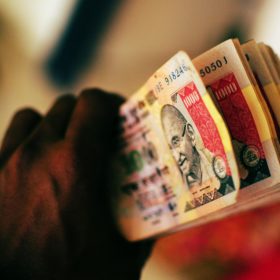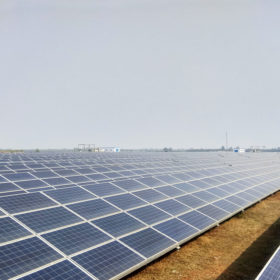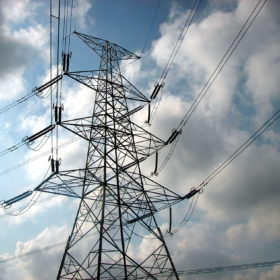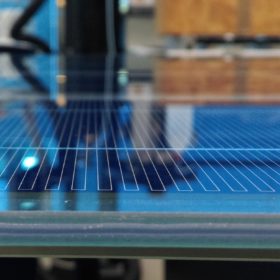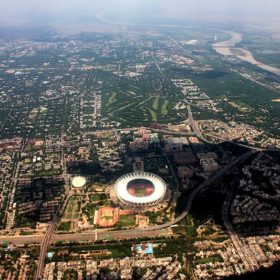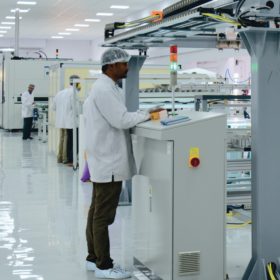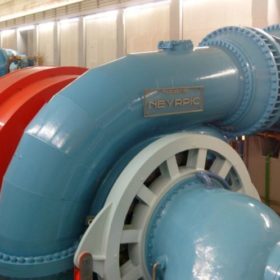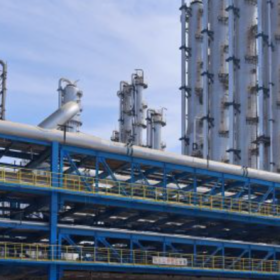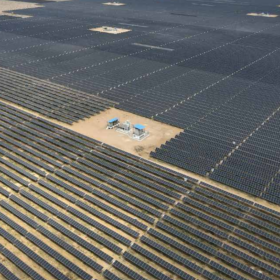Revisit forecasting and scheduling regulations for renewable power generation: NSEFI to MERC
To enhance the effectiveness of settlement mechanism, the National Solar Energy Federation of India (NSEFI) has asked the Maharashtra Electricity Regulatory Commission (MERC) to allow aggregation of generation schedule based on independent power producer or quality coordinating agency and considering the same for calculation of deviation. Removal of the rescheduling charges and dual payment mechanism are among other changes sought.
GST and safeguarding duty have driven up solar power costs nearly 6%
A study by the Council on Energy, Environment and Water claims the imposition of goods and services tax on PV projects, safeguarding duty on module imports and late payments from hard-up power distribution companies are all hindering Indian solar.
Solar EVA sheets attract AD duty for five years
Following a petition by domestic manufacturers seeking legal protection under anti-dumping laws, the Directorate General of Trade Remedies has recommended the imposition of duties ranging from $537-1,559/metric ton on solar ethylene vinyl acetate sheets imported from China, Malaysia, Saudi Arabia and Thailand.
Safeguard duty respite for solar developers in Maharashtra
Change of law decision by state electricity regulator opens the door for compensation, but only for schemes completed before duty was applied and commission ignored pleas to fix the rate of payments.
Stable policy, varied financing options on solar industry’s budget wishlist
The solar industry seeks tailor-made financing options for end consumers, especially small and medium-sized enterprises (SMEs) and micro SMEs (MSMEs), in addition to supportive and stable government policies to ensure speedier progress.
Power outlook gloomy amid coal and solar woes
India Ratings and Research has maintained a stable-to-negative outlook on India’s power sector for FY2019-20 owing to issues such as slower resolution of the stressed [coal based thermal] capacity, domestic coal unavailability, and reluctance of DISCOMs to sign long-term power purchase agreements. The outlook is not sunny for solar either.
India mulls anti-dumping duty on Malaysian solar glass
The Indian government may impose anti-dumping duty of US$ 114.58 per tonne on tempered solar glass imports from Malaysia in order to provide a level playing field to domestic manufacturers.
Emami demerges cement unit, consolidates solar business
Kolkata based Emami Group has transferred the solar power division of its cement unit to Emami Power, which aims to build over 300 MW of solar power capacity over the next three years.
Enhancing energy trading in South Asia
The Indian Ministries of External Affairs and Power, in collaboration with the Confederation of Indian Industry (CII), organized the South Asia Power Summit 2018, held recently in New Delhi. The daylong conference highlighted that diversity of energy resources in South Asian countries brings the opportunity to provide affordable, low-carbon energy in the region. The business case for enhanced energy trading in the region, and challenges faced in inter-country electricity trading were important elements of this discussion.
Hits and misses among latest 10 GW solar tender amendments
While the timelines for PV power plant execution and completion of manufacturing facilities are now more realistic, production obligations – especially for capacity utilization – need to be revisited.

